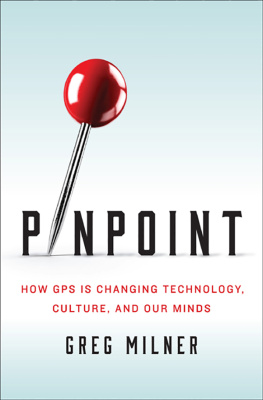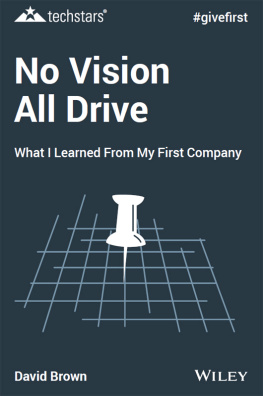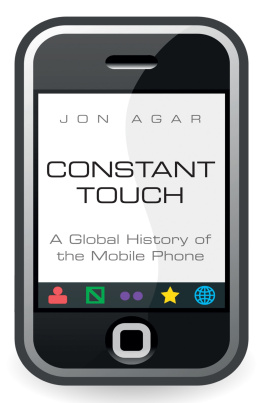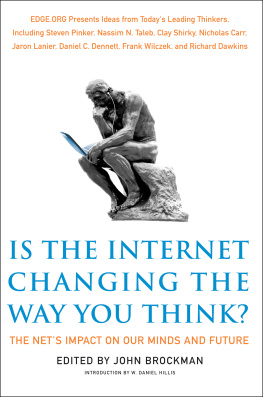

For J and V with gratitude
T o employ a wincingly obvious analogy, researching and writing this book often felt like navigating a barren desert on a moonless night, without GPS. I was very fortunate to find beacons that helped me find my way.
In a publishing world struggling to find its own bearings, I assumed editors like Tom Mayer no longer existed. Tom helped me realize what this book is about. He understood, often before I did, how disparate historical threads could be wound into a thematic rope. His extraordinary focus, attention to detail, and insistence on drum-tight text brought the book into full relief. In the alternate quantum universe where someone else edited Pinpoint, it is a vastly inferior work.
If there is a publisher more supportive of its authors than Norton, I havent heard of it. Ryan Harrington provided crucial editorial input and assistance. Ingsu Liu and her team orchestrated the striking cover art. Bill Rusin helped get the book into stores (and pixels), and Alice Rha got the word out. Laura Goldin ensured the coordinates were correct. Nancy Palmquist held it together. Allegra Huston let nothing get by her.
Bella Lacey read the manuscript, pointing out crucial questions that were going unanswered and providing a forest-level perspective when I was fixated on trees. She offered brilliant suggestions for restructuring as well as a much-needed reminder that although GPS has an American pedigree, its story needed to be global in scope.
As always, Daniel Greenberg was there from the fledgling concept to the finish line. I couldnt ask for a better advocate.
I was extremely fortunate to meet Len Jacobson, who spent hours giving me an insiders perspective on GPS history, and also gave the manuscript a full read. Read Lens memoir, Flying For GPS. Also, his book GNSS Markets and Applications is the best GPS primer Ive come across.
Yehuda Bock generously gave an early version of a close read. Tom Herring and Kristine Larson also offered very useful critiques. Todd Humphreys and Roger Johnston weighed in on the spoofing material, as did Mike Nellis on GPS tracking.
Many people contributed to making GPS a realityand I regret that this book inevitably leaves many unnamedbut two in particular deserve credit for creating the worlds only global utility. Brad Parkinson had the vision and the drive to lead the team that created a technology that thrives today, having barely changed since the early 1970s. Im very grateful for the large blocks of time he set aside to speak with me. I regret that I was never able to speak to Roger Easton, who died in 2014. Fortunately for me, his son, Richard Easton, has worked tirelessly to preserve his fathers legacyand helped me describe Rogers contributions to GPS history. Richards book, GPS Declassified, is definitely worth a read. Leo Slater at the Naval Research Laboratory was also a wellspring of information.
Charlie Trimble, the Brad Parkinson of commercial GPS, also shared his story, and helped me untangle technological issues related to satellite navigation. Thanks also to the other original GPS visionaries who told their tales, Javad Ashjaee, Ralph Eschenbach, and Ed Tuck.
Very special thanks to Rita Chretien for sharing her truly amazing survival story.
Jennifer Thibault and the U.S. Air Force Book Support Program laid the groundwork for my visit to the GPS Master Control Station. At Schriever Air Force Base, Marie Denson made the necessary arrangements and was a gracious host, even though I got lost on the way and showed up late. (I blame GPS.) Stephen Dirks, Dean Holthouse, Jason Hope, Kevin Kiser, and Brian Stewart gave me the lowdown. Many thanks to Air Force Space Command, the 50th Space Wing, and especially the men and women of 2 SOPS, the tip of the GPS spear.
For their time and hospitality at NASAs Jet Propulsion Laboratory, I thank Yoaz Bar-Sever and Larry Young. JPLs Stephen Lichten and Tomas Martin-Mur were also invaluable sources of information on the intricacies of Mars landings.
Carol Snyder and Wade Stewart at Trimbles agriculture division went above and beyond in giving me an introduction to precision agriculture, as did Troy Seaworth and Seaworth Farms. Thank you to Silvia McLachlan for helping me make the connections.
Keith Davio arranged for me to tag along with one of Tom-Toms data collection vansand thank you to Joe Palatucci for showing me a day in a drivers life. Dan Adams, Peter Davie, and Maureen Krauland also helped me navigate through the company.
Thank you to Tyler Barnet and Glenn Marston for responding to my quixotic attempts to solve the mystery of the Fallen Man on East 29th St.and to Sara Murray of Buddi, for letting me get the full experience of being GPS-tracked, with the assistance of Louise Harrold and Chris Kennedy.
Alissa Kleinman provided impeccable research assistance.
Many thanks to everyone else who unhesitatingly extended a helping hand for this book, taking the time to tell me their stories, explaining the history and technological intricacies of GPS: Claudio Aporta, Michael Barclay, Beth Bartel, Ben Bartolome, Ron Beard, Eric Beaton, Michael Bevis, Steve Bradford, Justin Brookman, Nolan Bushnell, Robert Cheetham, Ann Ciganer, Herv Clauss, Steve Coast, Dan Cole, Peggy Conway, Chuck Counselman, Jim Davis, Loren De Groot, Jim Dempsey, Deborah Dennard, George Drake, Ryan Driscoll, Per Enge, Ralph Eschenbach, John Fischer, Sean Fitzpatrick, Julia Frankenstein, Gary Freeland, Robert Gable, Nunzio Gambale, Amy Gilroy, Buster Glosson, Allen Goldstein, Gaylord Green, Liz Groff, Anurag Gupta, Tim Hall, Rick Hamilton, Debbie Henderson, Jim Higgins, Kirk Holub, Chuck Horner, Joseph Hoshen, Jiung-Yao Huang, Ken Hudnut, Aaron Huff, Eric Hunsader, Michael E. Jackson, Kevin Kelly, Josh Khani, Jay Dee Krull, Gilly Leshed, Judah Levine, Sam Liang, Rich Maher, Mani Mahjouri, Steve Malys, Hans Mark, Susan Marshall, Tom McHugh, Jules McNeff, Donald Mitchell, Richard Nimer, Scott Pace, Dave Paddock, Ganesh Pattabiraman, Stig Pedersen, Bruce Peetz, Arun Phadke, Sam Pullen, Logan Scott, Edwin Stear, Sam Stein, Ron Stewart, Mike Swiek, Dave Van Dusseldorp, John Warburton, Jim White, Pete Wilhelm, Ronald Yates.
These people all made the task at hand a little easier: Peter Adams, Berni Ai-Kuo, Monica Allen, Holly Baker, Gary Barta, Beth Bartel, Jennifer Beadling, Philip Bourekas, Tim Boyle, James Burgess, Susan Cadrecha, John Ciampa, Steve Coast, Robert Crane, Cam Crary, William Davenport, Ann Marie Dryden, Douglas Equils, Erica Fouch, Johnine Fregia, Scott Gastel, Chris Gates, Malcolm Gladwell, Nancy Greco, Timothy Greeley, Ivan Isakova, LaGina Jackson, Jake Jacobson, Tammy Jones, Reishia Kelsey, Osama Khalil, Aaron Lebovitz, Rita Lee, Michael Lombardi, Peter Lumsdaine, Tom Mackie, Rod MacLeod, Michael Mathog, Donna McKinney, John Merrill, Tim Midyett, Kimberly Mielcarek, Manoj Narang, Frank ODonnell, Kevin Ortiz, Emmanuelle Parise-Tarquis, Wyn Partington, Brian Peterson, Steven Romalewski, Dan Roman, Tracy Schriver, Brian Shaw, Paula Shawa, Paul Smith, Tom Soler, Kurt Steinert, Lonnie Tebow, John Tipaldo, Jack Tisdale, Jim Tugman, Rex Turner, Pete VanAmburgh, Michael Wallace, Patrick Whalen, Ken White, Vladimir Yakovlev.
Thank you also to Brooklyn Public Library, Esri, FAAs William J. Hughes Technical Center, Granta Books, Metropolitan Transportation Authority (New York), National Geospatial-Intelligence Agency, New York State Department of Transportation, New York Public Librarys Science, Industry and Business outpost, Stanford GPS Laboratory, Tradeworx, Transportation Alternatives, UNAVCO, Vulnerability Assessment Team.
Next page










